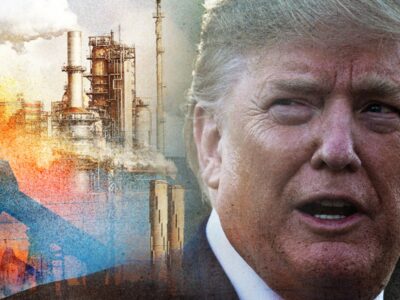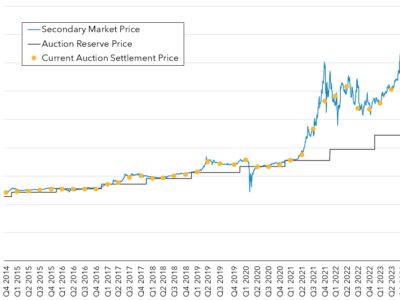The San Bruno Explosion and the Public Trust
Do you remember the horrific Pacific Gas & Electric Company (PG&E) natural gas pipeline explosion in San Bruno, California, that killed eight people and burned down dozens of homes? Two years later, there are still several proceedings pending before the California Public Utilities Commission (CPUC) to figure out who should bear costs resulting from the accident, and how much PG&E should be fined for what appears to have a been negligent disregard for pipeline safety.
The San Francisco Chronicle reports that PG&E has offered to pay a $550 million fine as part of a settlement with parties to the proceedings. The Chron also reports that consumer groups and the City of San Bruno have rejected the deal. It gets even more interesting when the newspaper reports that the Commission’s President had a private meeting with the Mayor and City Manager of San Bruno and was “livid” that the City turned down PG&E’s offer.
I certainly don’t know if any of these things are true – whether PG&E offered to pay the amount stated, whether the Commission President met privately with parties to the negotiations, and (if so) what he said. But I do know that if these assertions are all factual, there are several reasons that this should be concern to all of us.
The concern goes to the heart of economic regulation. The CPUC was established as an independent agency — legally obligated to serve as an unbiased arbiter of the public interest, bound by its own rules, and required to adhere to the standards of due process. Although it has become common for parties to major proceedings to offer settlements for the Commission’s consideration, the Commission can only adopt a settlement that it finds, after public notice and opportunity to be heard, to be in the public interest.
The Commission’s own rules require that what happens in negotiations must remain confidential. Someone violated that rule by giving information to the press, but someone also violated the rule by letting the Commission President in on the conversation. The President never should have allowed anyone (whether it was PG&E or the City of San Bruno) to reveal confidential information to him. And he certainly should not have commented, in any way, on the pending negotiations.
Why should we care? Because a settlement creates its own momentum. One assumption is that parties to negotiations deal at arms length and that none has a special advantage. Another assumption is that a settlement represents a better expression of the public interest than could be derived through litigation. The result is that the burden of proof often shifts in the face of a settlement — it is adopted unless someone can prove that its terms are not consistent with the public interest. Government officials often like settlements because they provide political cover, and can enable officials to evade criticism for a result that leaves one or more parties unhappy. After all, why else would a commissioner, who can cast his vote to support whatever resolution of the matter he chooses, be so upset if parties fail to cut a deal?
What would be so bad about a government official meeting privately with one party to negotiations to press for agreement to a particular deal? A commissioner sits as judge and jury. By talking about negotiations with any party (especially in support of a deal offered by another party), the commissioner tilts the playing field. He has tipped his hand as to what makes him happy, and increases the likelihood that any eventual settlement will be tainted as a result. How can the commissioner try to influence a deal and then pretend that the deal represents the parties’ best expression of the public interest? The Commission might as well forget about due process and just issue whatever decision it feels like.
And then there is the question of whether a government official who has worked to achieve a deal with a certain dollar amount attached can then sit as judge on that same case. Due process and fundamental fairness demand that officials recuse themselves from the ultimate decision when they have demonstrated bias or the appearance of bias. In the absence of recusal, the decision is legally vulnerable, and its adoption stands less of a chance of gaining public confidence.
A final issue, which will be left for consideration on another day, is the appropriateness of any private meeting between a party to a pending regulatory proceeding and a commissioner. Most agencies similar to the CPUC prohibit such meetings. Over the years, the CPUC has received some support for private meetings in the form of legislation. However, a legislative fix does not evade an ethical dilemma. Who feels good about having the judge meet with a single party, behind closed doors? Even if the law allows it, commissioners don’t have to do it.
Reader Comments
8 Replies to “The San Bruno Explosion and the Public Trust”
Comments are closed.








Wow. Just wow.
I’m curious about how “the CPUC has received some support for private meetings in the form of legislation.”
Wow. Just wow.
I’m curious about how “the CPUC has received some support for private meetings in the form of legislation.”
In response to the question about how the California PUC received support for private meetings in the form of legislation:
There have been various efforts over the years to pass a law banning ex parte communications in California, as they are banned in most other states. The utility lobbyists have successfully pushed back each time. Where attorneys are involved, there should be no need to pass such a law, since private meetings violate ethical standards for attorneys and judges. Such meetings were happening anyway.
What the legislature was able to do was pass a law that said such private meetings were not allowed, and then set forth reporting requirements and other procedures that would apply if such a meeting occurred anyway. The clear message was that there would be no ill consequences from meeting with decision makers as long as the other requirements were honored. Ever since, most commissioners have interpreted this as license to meet with whomever they please. The one exception is an outright ban on meetings with individual parties to complaint proceedings.
Thanks for the info.
Sounds crazy: a safe harbor for something illegal.
What was the bill (or chapter) number?
In response to the question about how the California PUC received support for private meetings in the form of legislation:
There have been various efforts over the years to pass a law banning ex parte communications in California, as they are banned in most other states. The utility lobbyists have successfully pushed back each time. Where attorneys are involved, there should be no need to pass such a law, since private meetings violate ethical standards for attorneys and judges. Such meetings were happening anyway.
What the legislature was able to do was pass a law that said such private meetings were not allowed, and then set forth reporting requirements and other procedures that would apply if such a meeting occurred anyway. The clear message was that there would be no ill consequences from meeting with decision makers as long as the other requirements were honored. Ever since, most commissioners have interpreted this as license to meet with whomever they please. The one exception is an outright ban on meetings with individual parties to complaint proceedings.
Thanks for the info.
Sounds crazy: a safe harbor for something illegal.
What was the bill (or chapter) number?
Look at the series of sections starting with California Public Utilities Code Section 1701. See, for instance 1701.3(c)
Look at the series of sections starting with California Public Utilities Code Section 1701. See, for instance 1701.3(c)